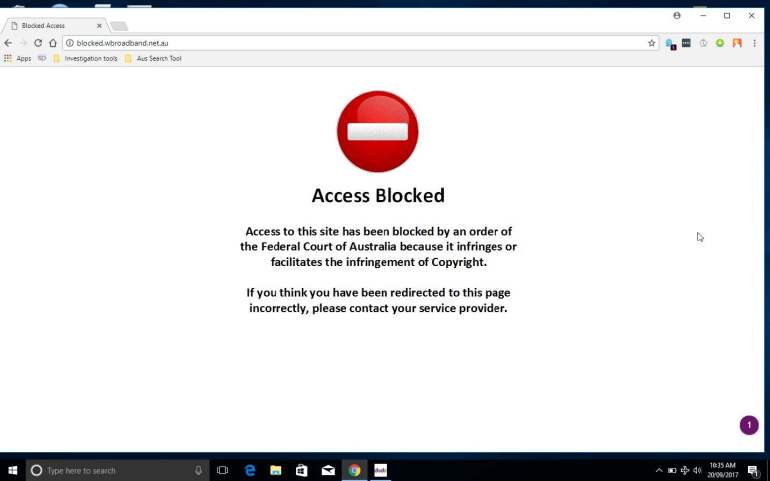Google and other search engines must take action to stop people from accessing illegal film and TV content via the back door, according to Graham Burke.
The chairman of Creative Content Australia (CCA), Burke hailed the effectiveness of site-blocking legislation introduced last year.
But he said more needs to be done to prevent people from watching infringing content via proxy sites, decrying that as large-scale theft which threatens Australian jobs and Australian stories.
He was speaking after the release of a CCA-commissioned survey which showed that while the overall piracy levels have not risen from last year, after reaching a blocked site, 77 per cent of adults and 74 per cent of teens search for an alternative infringing site for the same content.
“Site-blocking works and we have shut the front door of the department store by removing the big sign ‘Free Stolen Goods’,” he said.
“But as the processes to remove ‘mirror’ sites (same car, different number plates) are slow, search engines are blatantly thumbing their noses at Australian law and courts by leading people to the back door.
“All you have to do is Google ‘PIR’ and Google auto complete comes up with ‘Pirate Bay proxies.‘ Google can address this as they have done in other areas and if they don’t they are demonstrating only an interest in luring traffic to their advertising model business. It is time for the tech giant to deliver on their public position of ‘Google is up for working with content owners to fight piracy.’
“It would be tragic if an overseas monopoly that doesn’t pay tax in our country cost Australians their jobs by its facilitation of large-scale theft.”
The ninth annual survey commissioned by the anti-piracy organisation CCA revealed 21 per cent of adults aged 18–64 admit to some form of piracy, the same as in 2016 and an improvement on 2015’s 25 per cent.
CCA executive director Lori Flekser attributed the plateauing to a spike in subscriptions to streaming services such as Netflix and Stan, the presence of the site blocks and the prevalence of malware.
Addressing the Screen Forever conference in Melbourne today, Flekser said the research shows the majority of would-be pirates have experienced a blocked site when searching for pirated content.
The research was conducted by Sycamore in conjunction with OmniPoll from September 14-19 so it did not measure the response to the Federal Court orders to block a further 59 sites, which came into effect in mid-September.
However the Australian Incopro study in May, based on the five sites blocked in December-February, showed combined usage of those sites and associated proxies decreased by 59.6 per cent since blocking began in September 2016.
CCA’s recent ‘Price of Piracy’ consumer campaign drew attention to the link between malware and piracy. Numerous international studies show that infringing video streaming has become the number one method to propagate malware on the Internet.
The new study confirms that among persistent pirates, 47 per cent of teens and 59 per cent of adults have contracted a virus or malware by clicking on an ad or pop-up, or from streaming or downloading movies or TV from a pirate site.
Flekser said the research had investigated the use of set top boxes and infringing apps for the first time and found they are ‘piracy’s new frontier.’
Last month Village Roadshow and a group of movie studios sought a Federal Court injunction to compel Internet service providers to block the app HDSubs+, which delivers streaming video to set-top boxes.



